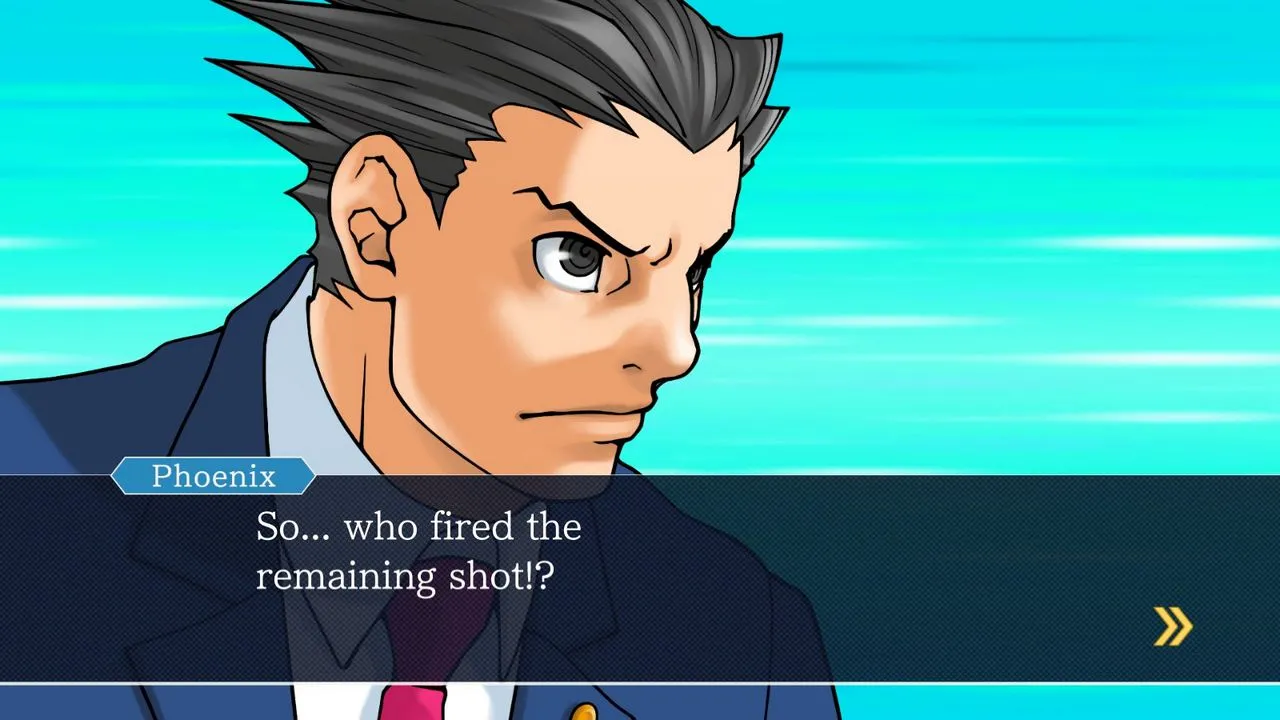
Unraveling the Mysteries: A Review of Phoenix Wright: Ace Attorney Trilogy
Contents
From courtroom dramas like 12 Angry Men to A Few Good Men, a common thread weaves through cinematic portrayals of justice: exploring the interplay between truth, human fallibility, and the legal system. It’s no surprise that these films often adopt a serious, even austere tone, reflecting the gravity of judging human character and dispensing justice. Japan, however, offers a different perspective. While respecting the principles of justice, the Phoenix Wright series injects a unique brand of humor and exaggeration into the courtroom drama.
For 18 years and across 12 installments, the Phoenix Wright games have garnered a devoted following, captivating players with their quirky take on legal battles. Yet, many of these titles remained confined to handheld consoles, with some even lacking English translations. Enter Phoenix Wright: Ace Attorney Trilogy, a compilation of the first three games, offering a wider audience the chance to experience these unique courtroom showdowns.
Holding All the Aces: Gameplay and Mechanics
 alt text describing image: Phoenix Wright pointing during a courtroom trial
alt text describing image: Phoenix Wright pointing during a courtroom trial
Unlike many Western detective games, Phoenix Wright: Ace Attorney Trilogy minimizes the focus on item collection and exploration. Instead, it immerses players in dynamic dialogues and courtroom confrontations. The game isn’t about uncovering who committed the crime, but rather how. The central question becomes less about identifying the culprit and more about unraveling the intricate web of circumstances surrounding the crime.
As Phoenix Wright, a fledgling defense attorney with a penchant for dramatic pronouncements and gravity-defying hair, players navigate 14 cases ranging from the comical to the suspenseful. The quest for truth can feel overwhelming at times, bombarded with information and conflicting testimonies. However, Wright’s unwavering determination and sharp wit make the process engaging rather than frustrating.
From the very first case in each game, Phoenix Wright: Ace Attorney Trilogy lays out its core mechanics clearly. Each witness testimony can be challenged, prompting further clarification and potentially uncovering new evidence or contradictions. Discrepancies can be exposed by presenting evidence that contradicts a statement. However, timing is crucial, and a misplaced piece of evidence can lead to a dead end.
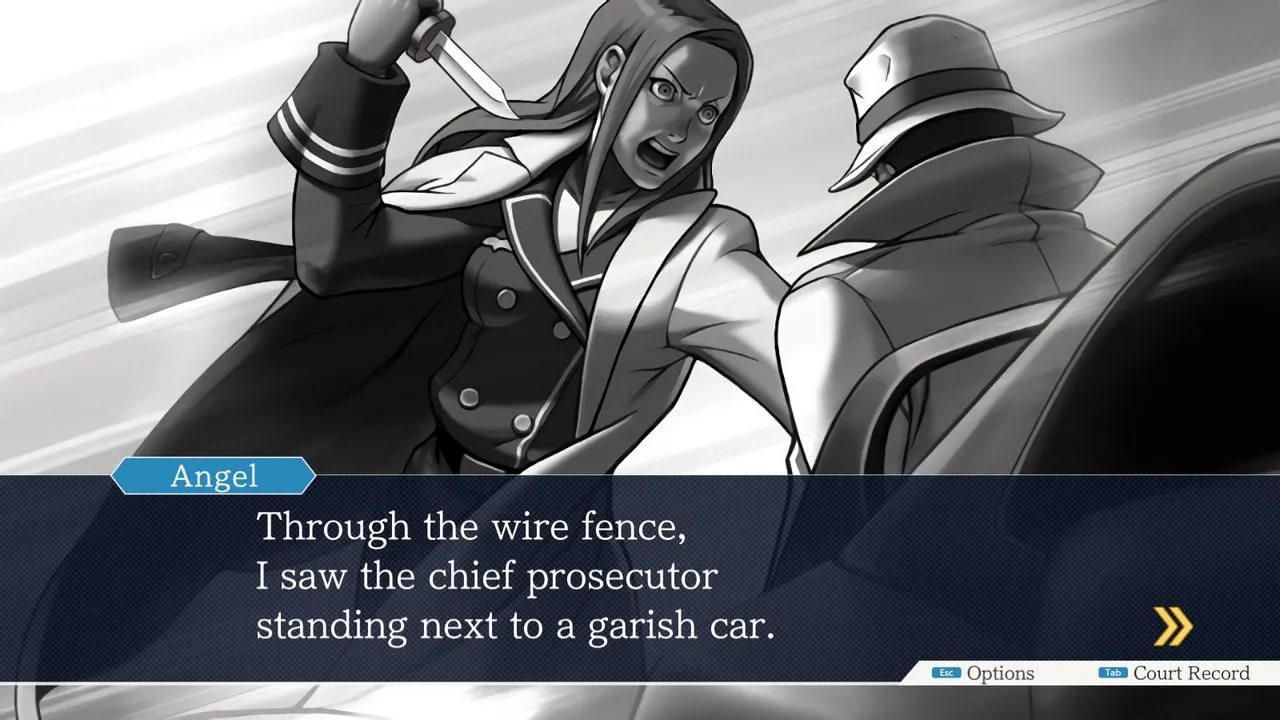 alt text describing image: Phoenix Wright examining evidence in his office
alt text describing image: Phoenix Wright examining evidence in his office
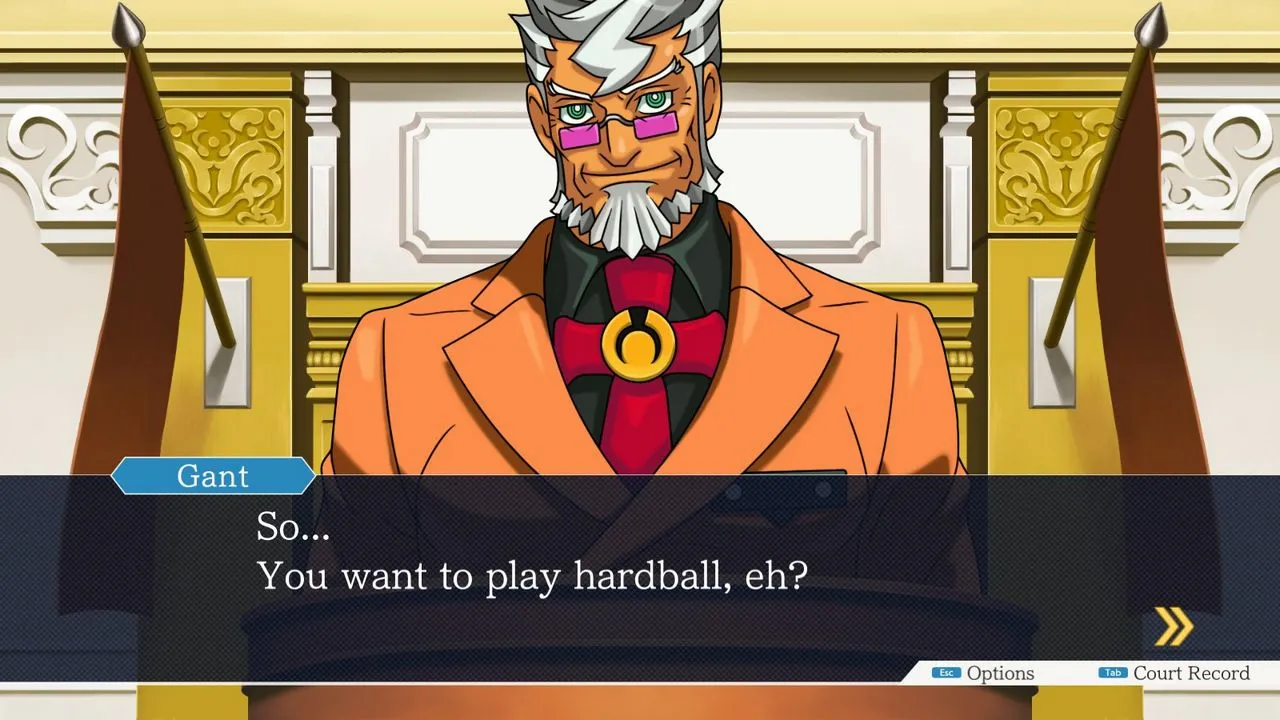 alt text describing image: A close-up of a character's face during a dramatic moment in a trial
alt text describing image: A close-up of a character's face during a dramatic moment in a trial
Starting with a simple premise, the game progressively increases the complexity of its cases. Some trials span multiple in-game days, requiring players to revisit crime scenes, interview witnesses, and meticulously examine every detail. The evidence piles up, and the witness list grows, demanding careful consideration of all available information. Sometimes, despite best efforts, the desired outcome remains elusive, reminding players that even the most skilled attorney can face setbacks.
This is where the magic of Phoenix Wright: Ace Attorney Trilogy lies. From its streamlined mechanics and minimalist presentation, the game crafts an addictive gameplay loop that relies on logical deduction. It’s not about thinking outside the box, but rather connecting the dots and building a cohesive argument. The satisfying feeling of a hard-won victory, even one achieved through sheer determination, makes each successful case a triumph.
A Compelling Narrative: Characters and Story
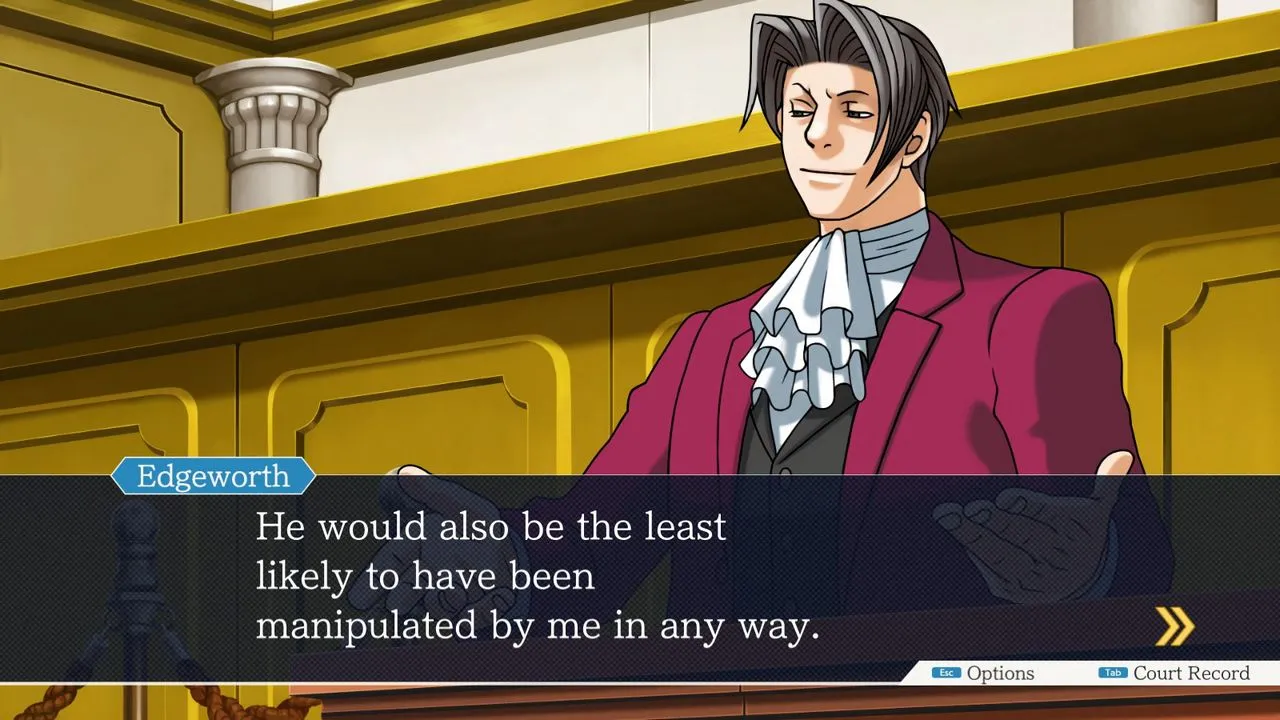 alt text describing image: Phoenix Wright slamming his hand on the defense table in court
alt text describing image: Phoenix Wright slamming his hand on the defense table in court
The cases in Phoenix Wright: Ace Attorney Trilogy are interconnected, not just through recurring characters, but also through an overarching narrative that unfolds across all three games. Wright’s assistant, Maya Fey, and prosecutor Miles Edgeworth are key figures in this story, providing personal stakes and driving the narrative forward. Allies and adversaries come and go, sometimes switching sides or influencing Wright’s decisions, adding depth and nuance to the overall experience.
The writing is sharp and efficient. Each new case introduces a new setting, new characters, and a wealth of information, all presented with clarity and purpose. There’s little extraneous dialogue; every line serves a purpose, both in conveying information and revealing character. Protagonists have believable motivations, antagonists aren’t always purely evil, and the cases themselves explore a range of themes and moral dilemmas.
The cases in Phoenix Wright: Ace Attorney Trilogy are interconnected, not just through recurring characters, but also through an overarching narrative that unfolds across all three games.
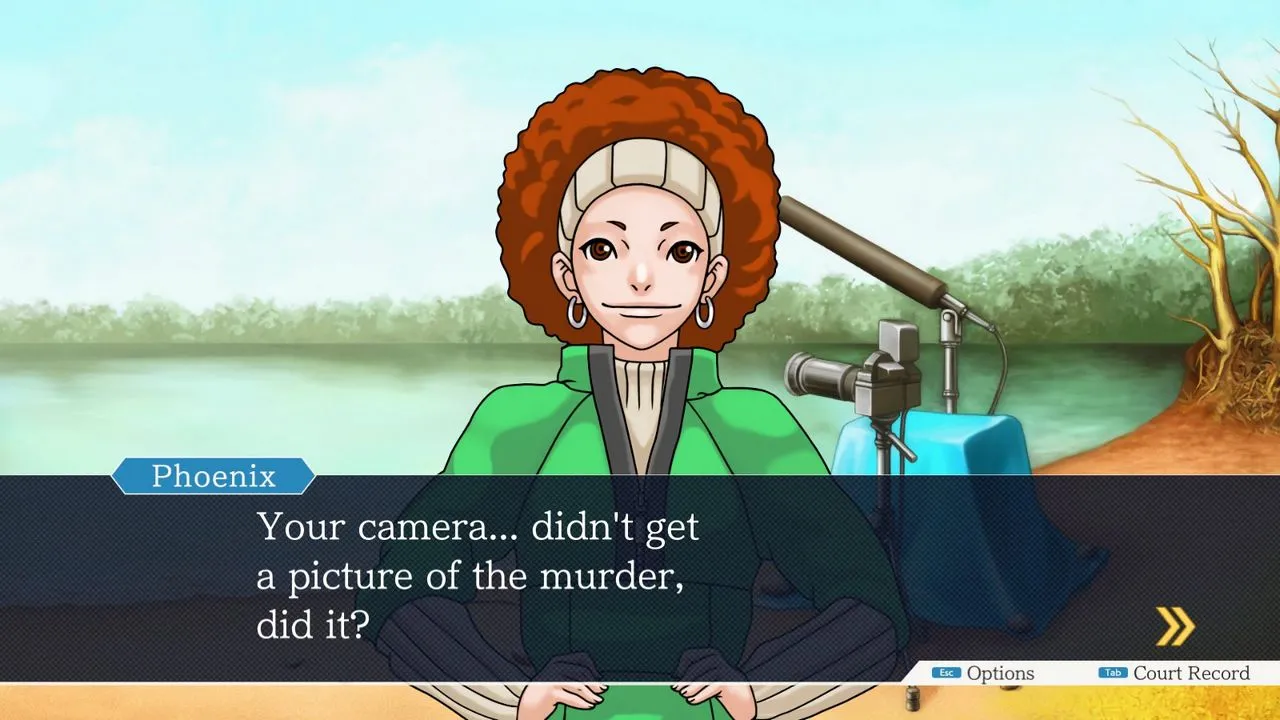 alt text describing image: Phoenix Wright presenting evidence during a trial
alt text describing image: Phoenix Wright presenting evidence during a trial
The game’s distinctive style extends to its presentation. Despite the limited animation, each character’s expressions and gestures are effective in conveying their personality and reactions. The music swells during dramatic moments, and the iconic sound of Wright slamming his hands on the defense table punctuates key moments in the trial. Even outside the courtroom, the soundtrack is memorable, with the Steel Samurai theme being a particular highlight.
YouTube link to Steel Samurai theme
Technical Details and System Requirements
Developer: Capcom
Publisher: Capcom
Genre: Adventure
Release Date: April 9, 2019
Platforms: PC, PS4, Xbox One, Nintendo Switch
Minimum System Requirements:
- OS: WINDOWS® 7, 8.1, 10 (64bit)
- CPU: Intel® Core™ i3-4160
- RAM: 4 GB
- VGA: Intel® HD Graphics 4400
- HDD: 1.8 GB available space
Tested System Configuration:
- OS: Windows 10 Pro 64-bit
- CPU: Intel i3 4170 3.7Ghz
- RAM: 8 GB
- VGA: ASUS ROG STRIX RADEON RX 570 4GB
- HDD: 1TB
Game Supported by Capcom. Game played on PC.
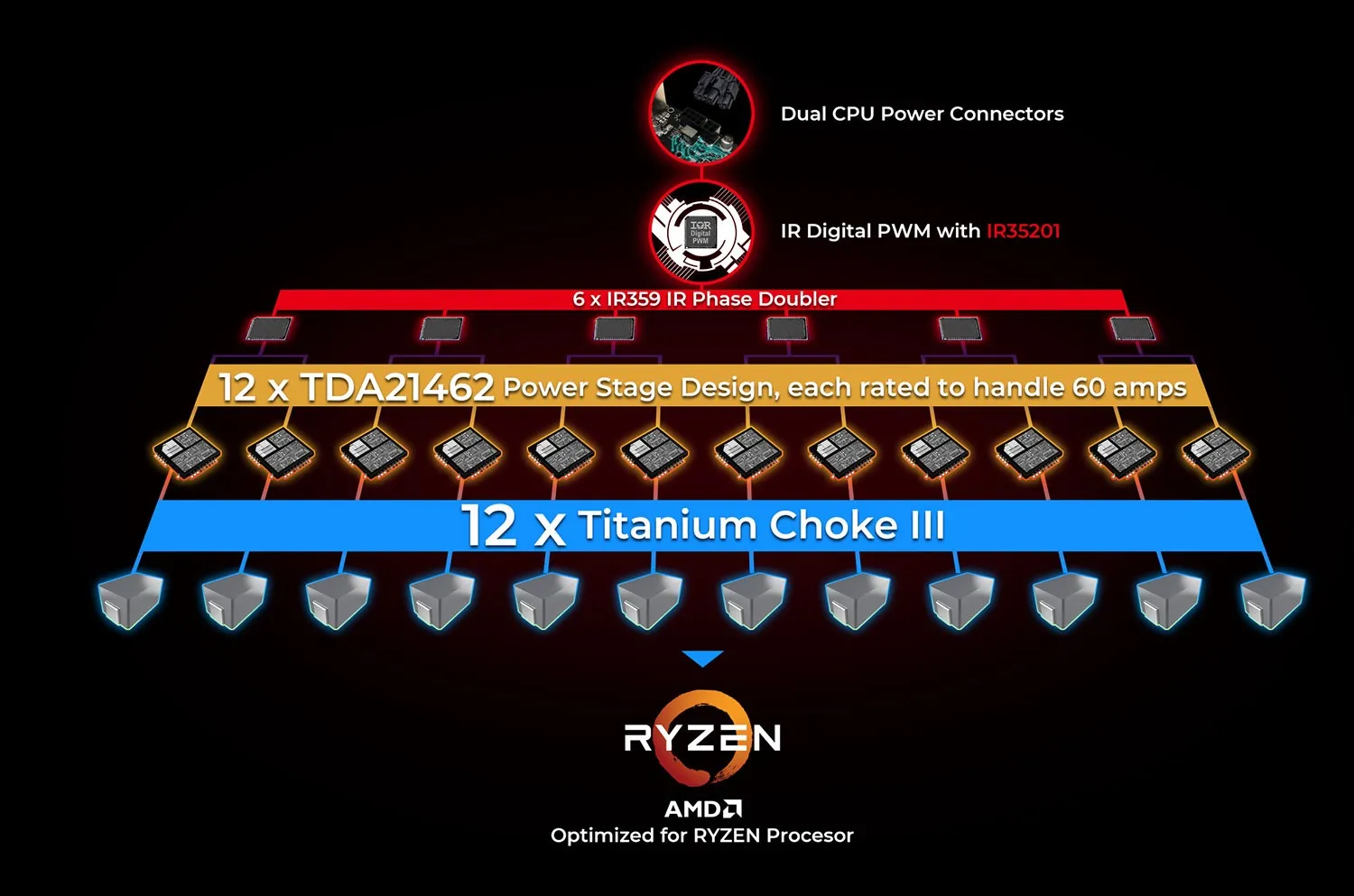


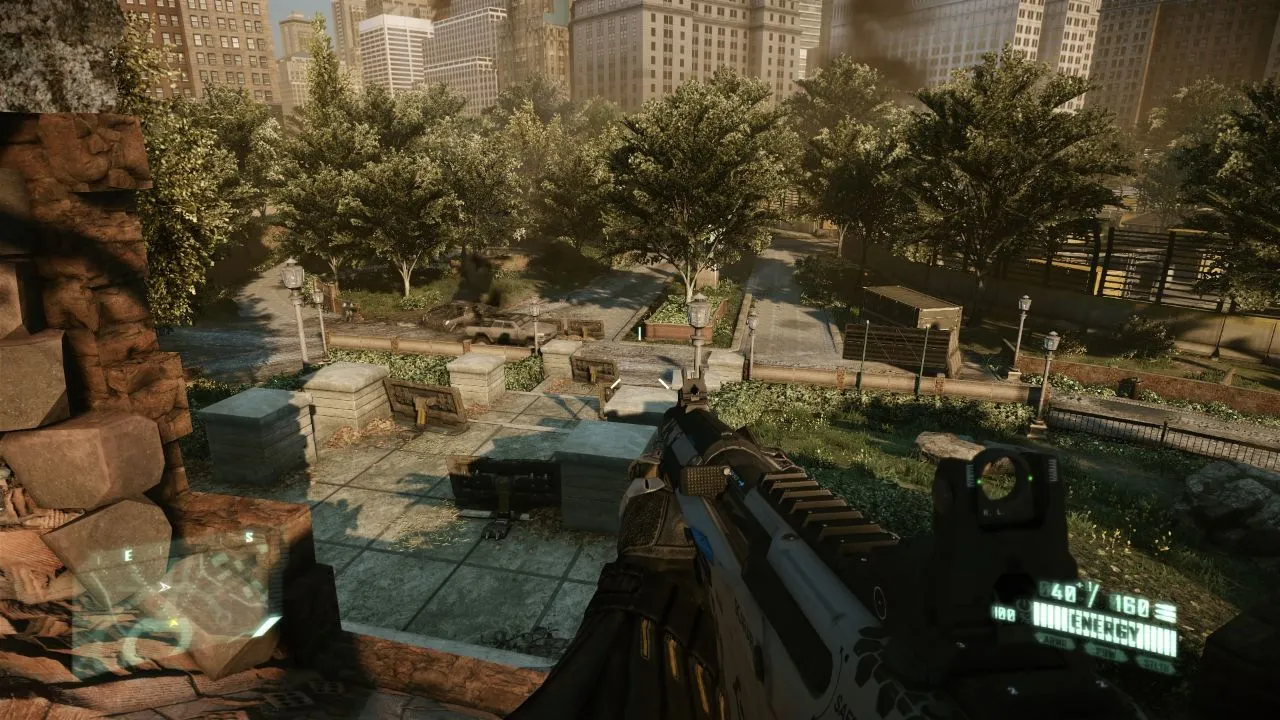
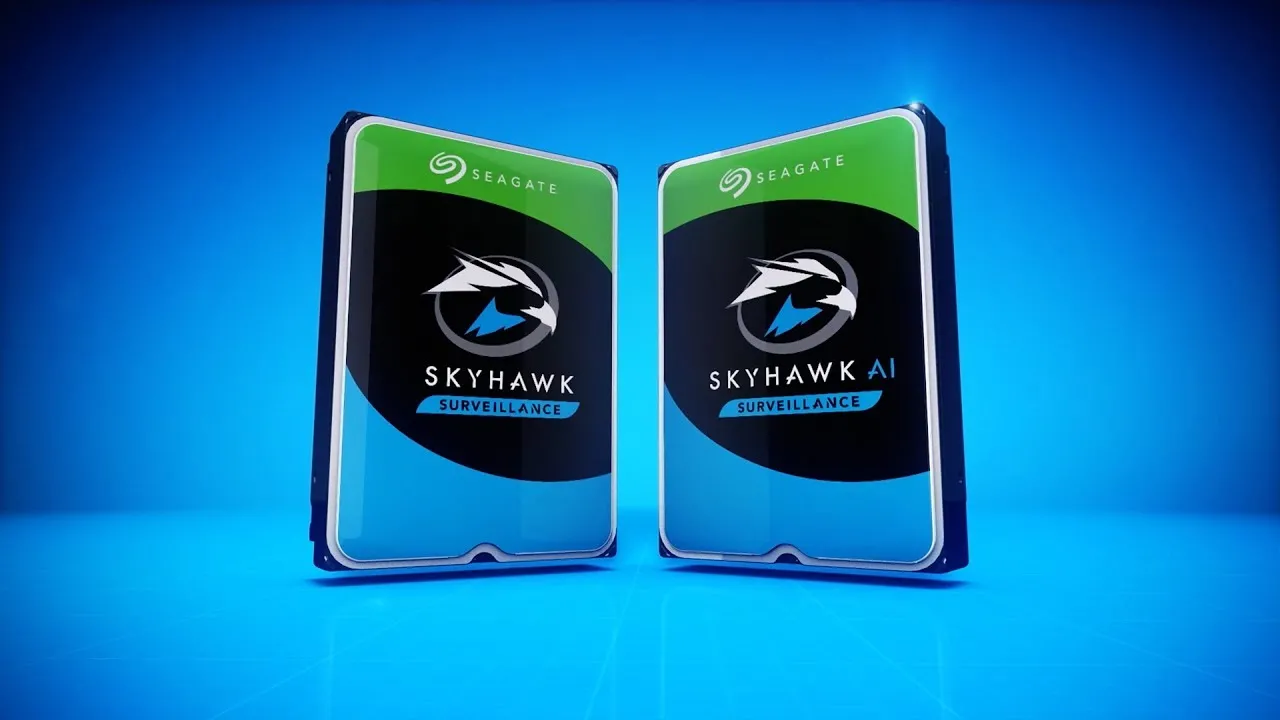
Comments (0)